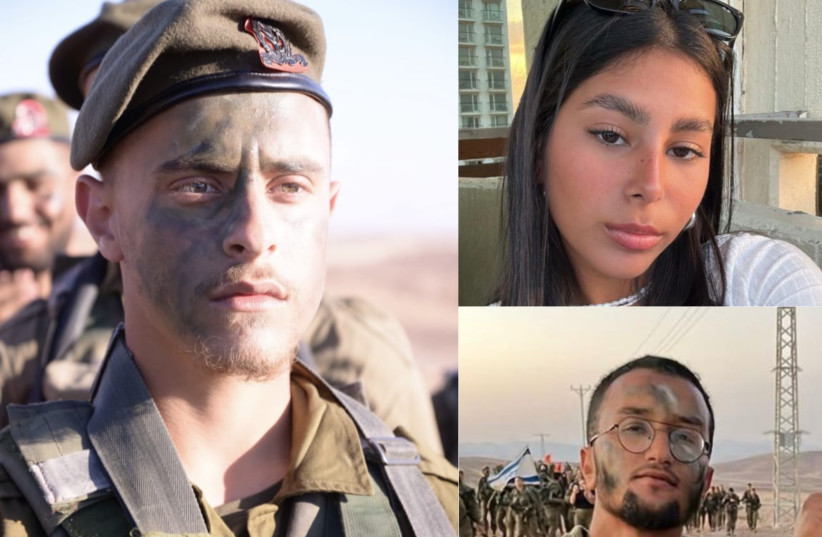The BDS Egypt page published a post, shared by the BDS Arabic page, mourning the death of the terrorist responsible for murdering three IDF soldiers in a terror attack on the Egyptian border on June 3.
The post celebrating the terrorist, Mohammed Salah Ibrahim, was published a few days after the attack.
Despite the Facebook post celebrating the actions of Ibrahim, the BDS website claims to urge “nonviolent pressure on Israel.”
The post, on the page with 56,000 followers, had accumulated a total of 76 reactions and 11 shares at the time of the report.
The post read, "In honor of our martyrs, let us step up our popular struggle against the enemy of Israel, for Palestine and for Egypt.

"The Egyptian People's Campaign to Boycott Israel (BDS Egypt) is proceeding with sincere condolences to the Egyptian people in general and the family of the martyr hero Mohamed Salah and salutes the free people of our country and the living forces that are still clinging to Israel's hostility and the choice to boycott it, confirming that loyalty to the righteous martyrs of Egypt is escalating the popular struggle, boycott, and withdrawing investments against the Israeli colonial and apartheid system, and against companies and institutions complicit in its crimes, and escalating popular opposition to normalization in all spheres, especially economic and cultural ones.
"The state of pride of the great Egyptian people and spontaneity of the martyred soldier Mohammed Salah in Egypt comes in response to the advocates of normalization, and so do the houses of condolence opened by our people in Palestine in honor of our hero martyr, so that the Israeli enemy cannot be a natural entity between us and because our struggle against the Israeli enemy is a struggle against one enemy.
"Even though more than four decades have passed since the signing of the so-called 'peace' treaty with Israel, our people still see Israel as their first enemy, not only for the continuation of its colonial regime in Palestine, but also because we are the owners of this issue and we are not merely sympathizers, and because Israel continues to conspire in a fierce and unceasing manner to ensure that it stops our Egypt from progressing, so it is working on hitting our highest interests, losing our military and economic independence, and undermining our sovereignty, especially in the following strategic aspects:
"First, trying to find an alternative to the Suez Canal, which hurts our national interests, and threatens one of the major national income sources. Secondly, support the Ethiopian Renaissance Dam Plan, which will reduce the Nile water ratio which is a direct dangerous threat to our people. Third, trying to find alternative channels to export gas directly to Europe, to compete with Egyptian refinery stations and limit their capacity. Noting that our rejection of all stolen enemy gas import projects is clear, but that - enemy gas - is additional evidence of its attempt to undermine Egypt."
Operation Kadesh and the Suez Canal
Egypt's Suez Canal saw a revenue of $700 million USD in 2022. It is operated and run by the Egyptian state-owned Suez Canal Authority.
In 1956, Israeli forces pushed Egypt toward the Suez Canal as part of Operation Kadesh. Israel withdrew from the canal in late 1956, according to the IDF & Defense Establishment Archives.
The archives claim that the action occurred because “Israel's borders were constantly attacked by Fedayeen terrorists, recruited by Egypt and operated from the Gaza Strip.” The military action occurred with support from France and Britain.
"This collusion is perfectly in line with the dark history of our enemy Israel's crimes against Egypt," the post continued. "Our Egyptian people cannot forget or forgive the brutal massacres of the Israeli enemy against our children, workers and soldiers. From the 'Bahr Baqar' massacre and the Abu Za'bel Factory in 1970, which killed dozens of workers, children and teachers, to the execution of hundreds of Egyptian POWs in cold blood after the 1967 aggression in violation of the simplest rules of international law and human and moral principles. As our people never forget their children who were martyred on the lands of Sinai and Palestine in defense of truth and dignity, these sacrifices inspire us to continue the struggle for justice and freedom."
The examples given occurred during the War of Attrition, which was fought between Israel and Egypt from 1967 until 1970. Egypt and Israel signed a peace treaty in 1979.
The “Bahr Baqar massacre” referenced in the post is referring to a 1970 military action where three Israeli Air Force crafts bombed a school in the Bahr El Bakar region, according to a New York Times article from 1970. The Times reported that the action resulted in the deaths of 30 Egyptian school children, who were attending a ‘Tiger Cubs’ meeting and injured 36 others. The article reported that no arms had been found within the school. Egypt’s Heritage Review reported that the action resulted in the deaths of 46 children and 50 others being injured.
The post ends with the statement, "For Palestine and for Egypt, let us boycott the Israeli enemy and step up our popular struggle against it."
The Egyptian border attacker
Ibrahim, who killed three IDF officers at the Egyptian border, was motivated by religious extremism, according to information from Army Radio. In addition to a Koran and a firearm, he was found to be carrying a knife that he used to cut the zip ties at the border barrier and six magazines of ammunition.
Sgt. Lia Ben-Nun, St.-Sgt. Uri Itzhak Ilouz and St.-Sgt. Ohad Dahan were murdered during the terrorist attack.
